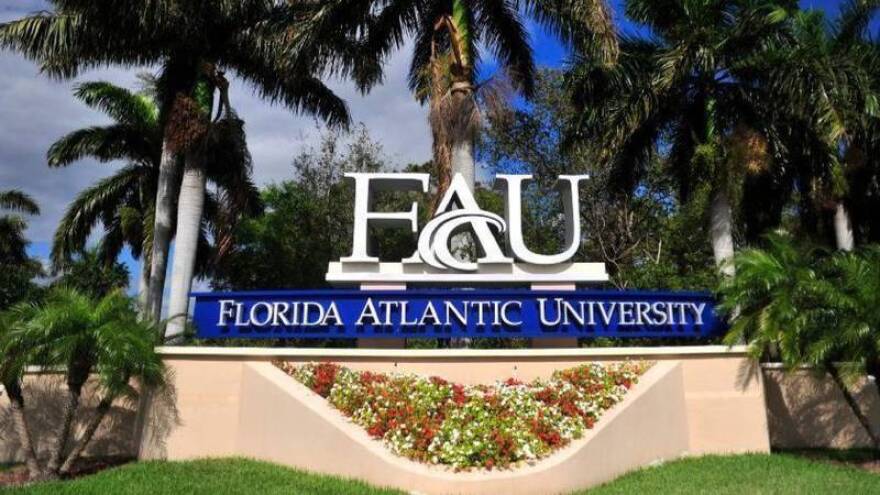Three weeks. That’s all the time that candidates have to apply to be the next president of Florida Atlantic University — a job overseeing a nearly $1 billion operating budget and serving more than 30,000 students across six campuses.
That timeline, which is significantly shorter than expected, has some faculty members raising concerns that the search isn’t much of a search at all — and that a political ally of Gov. Ron DeSantis is poised to get the job.
Sally Mason, a consultant with AGB Search, the firm FAU hired to help oversee the process, thought she’d spend all summer scouring the halls of higher ed for the next leader of Florida Atlantic University.
That's what the former president of the University of Iowa told faculty members during a campus listening session on April 3.
“We do expect to have the summer to recruit a pool. So that gives us a nice long runtime to be able to talk to people,” she said. “We’re hoping that that will work in our favor. It certainly has in previous searches that we’ve done during the summertime.”
Having the search extend through the summer break is good timing, Mason said, when top level campus leaders are more likely to have the time and bandwidth to make such a momentous decision.
“As many of you know, in the academic world, sometimes there’s a brief moment in the summer where you can pause and take a deep breath. And that’s when people often stop and think about, well what might be my next opportunity?” Mason said at the April 3 meeting.
But that’s not what happened.
When FAU’s Board of Trustees approved the formal job post on April 25 and officially launched the search, the application deadline was set for May 16th — giving candidates just three weeks to apply.
Faculty members question shortened timeline
Some faculty members are worried the search is rushing towards a predetermined — and politically motivated — outcome.
In March, the South Florida Sun Sentinel reported that Republican State Rep. Randy Fine had been approached for the job, despite his lack of experience in higher education. Fine is a self-described “conservative firebrand” who has backed DeSantis’ education agenda.
A spokesperson for the governor’s office has said "Rep. Fine has been a leader on education issues and we think he'd be a good candidate for the role.”
Throughout the search process, faculty members have been sounding the alarm about the potential for political interference.
READ MORE: Anxiety among professors as DeSantis pushes 'conservative firebrand' for FAU president
On April 30, members of FAU’s Faculty Senate Steering Committee penned a letter to the university’s Presidential Search Committee and the Board of Trustees questioning the shortened timeline.
“The nation is closely watching Florida’s higher education system. The planned trajectory invites questions over whether the search is being purposefully rushed, whether it is operating with a predetermined outcome, and whether the search is being conducted in an open and transparent way as required by Florida law,” the statement reads in part.
“As the presidential searches at the University of Florida and Florida Gulf Coast and the turmoil at New College have demonstrated, any process that does not adhere to convention and robust opportunity for involvement in decision-making invites suspicion and erodes the legitimacy of the outcome,” the letter reads.
An FAU spokesperson did not respond to a request for comment on this story.
Consultants say searches at other universities often last twice as long
Universities often spend roughly twice as much time on their presidential searches as FAU is, the school’s search consultants previously said.
“I think the five weeks that we’re doing on another search right now is really short,” Mason said during the campus listening sessions in April.
Her colleague Garry Owens agreed. Owens previously served as Dean of the College of Visual and Performing Arts at Texas Tech University.
“It’s usually six to eight weeks for the recruiting. I’ve done it as short as a month. But it was only because they needed to get someone in place right away,” Garry Owens said. “It can happen. But it’s very, very short.”
Making the overtures to qualified, engaging candidates — many of whom may be sitting presidents or provosts of ambitious, high-performing universities — simply takes time, Owens said.






